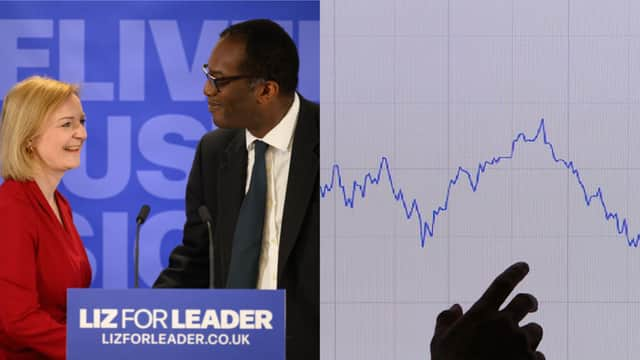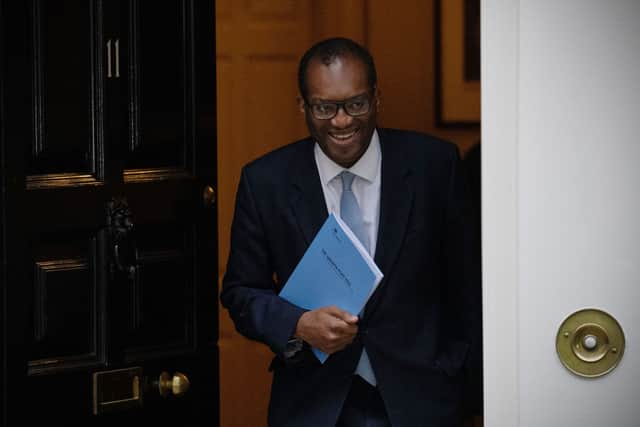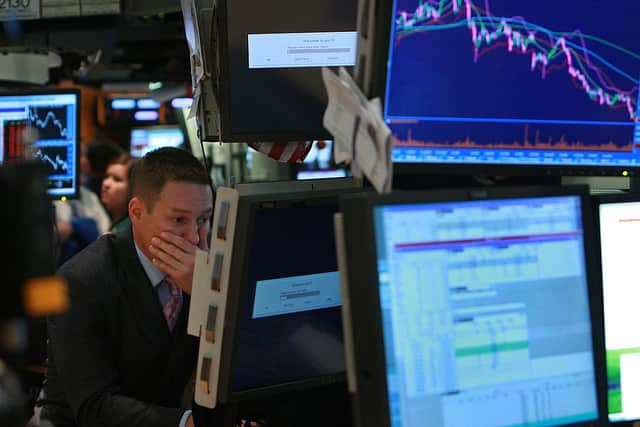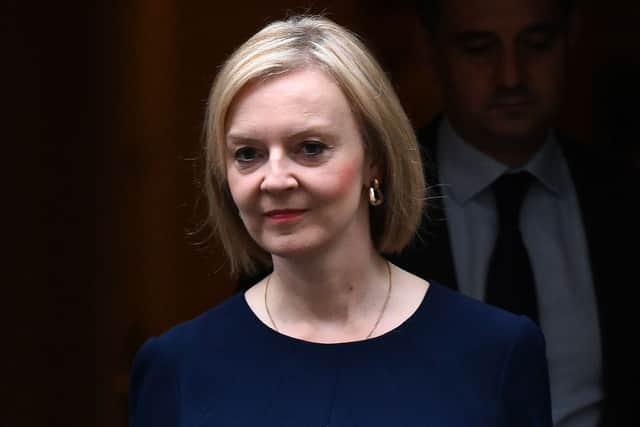What do economists think about the mini budget? Experts’ verdicts on tax cuts and Bank of England intervention


The UK’s economy has been through turmoil over the past week, prompting renewed fears that the country is heading towards a recession.
In the aftermath of chancellor Kwasi Kwarteng’s ‘mini budget’ announcement on Friday 23 September, the British public - already grappling with a worsening cost of living crisis - have seen the pound hit a record low, mortgage lenders withdraw hundreds of deals, and pension funds thrown into disarray.
Advertisement
Hide AdAdvertisement
Hide AdThe Bank of England, which has raised its interest rates to 2.25% (the highest they have been in 14 years), even launched an emergency intervention. It said in a statement it would buy the government’s bonds on “whatever scale is necessary”.
Much of what has happened has been unprecedented, which means it’s difficult to gauge what exactly went wrong - and what, if anything, was done right.
So we spoke to a few economists to get an expert view on the crisis.
‘Anti-evidence, anti-economics, anti-reason’
Economist and former professor Tony Yates told NationalWorld the “catastrophically bad” mini budget was unlike anything he’d seen before.
Advertisement
Hide AdAdvertisement
Hide AdHe said that the government’s “unfunded” tax cuts were its major mistake, explaining that it was an “incompetent” move - after already borrowing money to help with handouts - to then borrow more to slash taxes, particularly when these cuts, such as the changes to Income Tax, are helping the rich more than the poor.
“Nobody believed the government’s claims that cutting taxes would bring revenue up - as it’s such an unusual move - so bond markets became frightened about the predictability of the UK Government,” Mr Yates explained.
This sense of uncertainty caused bond prices to fall, pushed interest rates up, and put pension funds in difficulty, and many predict it will be difficult in the coming years to restore confidence in the government’s handling of the economy.
The ex-banker concluded: “The mini budget was ultimately anti-evidence, anti-economics, and anti-reason.”


‘A full scale crisis has been nipped in the bud’
Advertisement
Hide AdAdvertisement
Hide AdThough some have been concerned about the Bank of England’s intervention, given how extraordinary the move was, Mr Yates wagered that it “did the right thing”.
“It’s worked,” he told NationalWorld. “It’s had a big effect already. There wasn’t much else they could have done.”
His comments come after the Bank said it will buy government bonds on “whatever scale is necessary”.
The economist said the Bank’s intervention means the UK is out of the woods in terms of “heading into a financial crisis”. In the wake of the mini budget, he agreed with others that there was the risk of a crash on “the scale of 2008”, but that this has now “been nipped in the bud by what the Bank of England has done.”


Advertisement
Hide AdAdvertisement
Hide AdAt the same time, Mr Yates admitted there was some “murkiness” about the Bank’s actions, arguing it would be good to have more clarity on how this decision was made, who came to it, and perhaps even see the meeting’s minutes.
He also said that the intervention could not curb the fallout of the tax cuts, because interest rates will still go up - putting people in “difficulty” and likely resulting in less spending on the NHS, which is already facing a “crisis” in emergency care.
“It’s not looking good for the economy, but the risk of a real financial crisis has been curbed for now,” he summarised.
‘We will all pay the price’
Jonathan Portes, professor of economics at King’s College London, has further concerns relating to the Bank of England, saying the country is “stuck between a rock and a hard place”.
Advertisement
Hide AdAdvertisement
Hide AdHe said that even if the Bank “sticks to its mandate”, the “costs will be substantial”, also voicing worries about its reversal of its earlier commitment to ‘quantitative tightening’ to instead commit to buying more UK government bonds.
“While they’ve justified this because of recent market turbulence,” he commented, “rather than to help out the government with its borrowing – there’s obviously a fine line here.”
As for the mini budget itself, the professor condemned it as “completely irresponsible and economically dangerous”. He, like Mr Yates, also drew attention to the tax cuts which were “mostly for the better off”.
Professor Portes continued: “The mini budget has destabilised the whole macroeconomic framework… We will all pay the price.”


‘Handouts were the right thing’
Advertisement
Hide AdAdvertisement
Hide AdAccording to economist Mr Yates, the handouts Liz Truss announced as part of her plan to deal with skyrocketing energy bills, as well as the ones her predecessor Boris Johnson and ex-chancellor Rishi Sunak organised a few months ago, were the “right” course of action.
“It helped prevent a disastrous recession,” he said, referring to the Energy Relief Scheme. “Of course, it could have been better targeted - focusing more on those who really need help with their bills, rather than offering discounts to people who live in mansions too, but in practical terms this is very difficult.”
While he views the tax cuts as “incompetent”, Mr Yates admitted that he was surprised at the scale of the financial crisis the UK seemed to be suddenly plunged into - and said it would have been difficult to predict.
“The best thing the government can do from an economic standpoint is reverse the tax cuts,” he said.
Advertisement
Hide AdAdvertisement
Hide AdDespite the hopes of experts, this is something that does not seem likely. In a series of tough local radio interviews on Thursday, in which she was grilled about recent policy decisions, Truss insisted that the government had “acted decisively” in the face of a crisis.
The expert consensus appears to be that this is a crisis very much of her own making.
Comment Guidelines
National World encourages reader discussion on our stories. User feedback, insights and back-and-forth exchanges add a rich layer of context to reporting. Please review our Community Guidelines before commenting.
